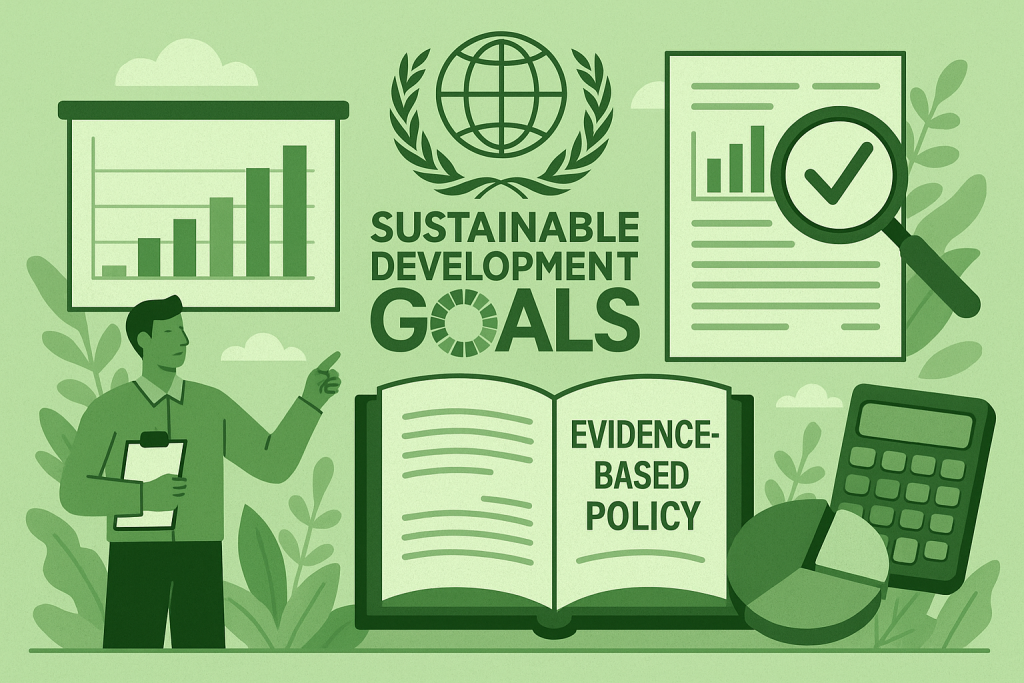The adoption of the Sustainable Development Goals (SDGs) in 2015 was celebrated as a global milestone in promoting sustainable development. With 17 goals and 169 targets, the SDGs provide a shared framework for addressing poverty, inequality, environmental degradation, and climate change. For Indonesia, the SDGs were quickly integrated into national development plans and embraced as guiding principles for policymaking and international cooperation. The government has issued regular Voluntary National Reviews (VNRs), established coordination mechanisms, and encouraged partnerships with civil society, the private sector, and academia.
Despite this progress, however, evidence suggests that the impact of the SDGs in Indonesia has been more visible in discourse than in substantive transformation. Like many countries worldwide, Indonesia often highlights the SDGs in policy documents and speeches, but translating these commitments into cross-sectoral reforms and concrete outcomes remains a challenge. Development priorities tend to favor goals that align with existing agendas, such as economic growth and infrastructure, while issues such as climate action, social inequality, and environmental integrity receive relatively less emphasis.
One key challenge lies in the foundation of data. The SDGs require reliable indicators to guide evidence-based policy, yet Indonesia’s statistical system is not always able to capture complex realities on the ground. For example, poverty statistics rely on narrow definitions that may understate the lived experiences of vulnerable groups, while environmental indicators such as deforestation, fisheries decline, or air quality are often reported with delays or inconsistencies. This can create a gap between official narratives of progress and the conditions experienced by communities. Without accurate and transparent data, the risk emerges that achievements look stronger on paper than they are in practice, reducing the effectiveness of policies intended to “leave no one behind.”
Another dimension is the role of research institutions. While the government plays a central role in coordinating SDG implementation, independent universities, think tanks, and civil society research centers are essential to provide balance. Their independence allows them to act as a “compass,” offering constructive critique, highlighting policy trade-offs, and ensuring that long-term sustainability is not overshadowed by short-term political or economic interests. For instance, independent studies on energy transitions, social protection, or biodiversity loss can enrich government strategies with alternative perspectives and innovative solutions. Supporting the autonomy and capacity of such institutions is therefore critical for maintaining credibility and ensuring that SDG implementation is genuinely evidence-based.
Indonesia’s experience also highlights the importance of policy coherence and inclusiveness. Different ministries and agencies sometimes pursue conflicting agendas, for instance between economic expansion and environmental protection, which limits the integration that the SDGs envision. At the same time, while civil society and local governments have begun to engage actively with the SDGs, their voices are not always fully incorporated into national decision-making processes. Strengthening inclusiveness and coherence would help ensure that sustainable development is not only a central government narrative but also a shared commitment across levels of governance and society.
Looking ahead, Indonesia’s journey with the SDGs illustrates both the opportunities and the risks of global goal-setting. The goals have raised awareness and created a common language for sustainability, yet their implementation depends on the quality of institutions, the credibility of data, and the openness to independent input. A constructive path forward would involve strengthening the accuracy of national statistics, empowering independent research institutions, and fostering meaningful partnerships with local communities and civil society. By doing so, Indonesia can move beyond symbolic commitments and lay the foundation for truly transformative change.
In conclusion, the SDGs provide Indonesia with a valuable framework for aligning national development with global sustainability. Yet their success will depend on how well the country can bridge the gap between rhetoric and reality. Ensuring reliable data, maintaining the independence of research, and promoting inclusive policymaking are not just technical matters, but fundamental requirements for building trust and achieving genuine progress. With 2030 fast approaching, Indonesia has the opportunity to demonstrate that sustainable development is not only about setting goals but also about building the integrity, evidence, and cooperation needed to realize them.
-Aqwin-

